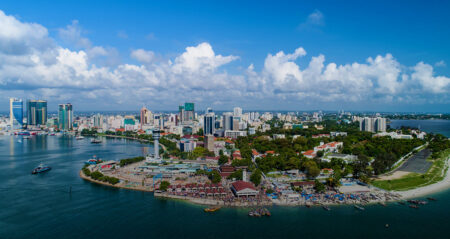Among the various ways to strengthen the private sector and thus promote African trade, African governments must enable the private sector to play an active role in realizing regional integration objectives.
- Regional trade remains low despite the African Union establishing and operationalizing the Africa Continental Free Trade Area (AfCFTA).
- Given their limited financial resources, most African governments must find methods to harness private investment in infrastructure.
- A credible system for successful public-private sector cooperation must be established to harness private sector potential, strengthen productive capacity, and improve chances for expanding African trade,
Regional African trade remains low
Regional trade remains low despite the African Union establishing and operationalizing the Africa Continental Free Trade Area (AfCFTA). While there are significant improvements, Brookings indicates that intraregional trade accounts for just 22 to 25 per cent of Africa’s overall exports. One of the primary explanations for the low African trade performance has been the lack of a vibrant and dynamic private sector to take advantage of the available opportunities in the trading system.
Africa’s private sector faces several challenges compounded by regional integration initiatives for boosting trade focus on processes, including removing trade barriers, without proper attention to build productive capacities for private sector development to address the prevailing challenges effectively. Thus, moving away from these direct and process-based tactics towards an improved development focus is necessary.
The private sector plays a significant role in ensuring regional integration works for Africa. Although governments sign trade agreements, the private sector understands businesses’ challenges and can take advantage of the prospects created by such contracts for regional trade. Among the various ways to strengthen the private sector and thus promote African trade, African governments must enable the private sector to play an active role in realizing regional integration objectives.
READ MORE: Outlook: Investment Opportunities in Africa’s water transport
Boosting African trade
Studies suggest that access to finance remains one of the significant challenges hindering Africa’s private sector development. African private businesses have a hard time accessing affordable finance for their businesses. Thus, access to financial assets is a crucial area requiring creative solutions.
Only 23 per cent of African enterprises can access loans or credit lines compared to 46 per cent for non-African developing countries. Still, even this 23 per cent can only access loans at interest rates that are 5–6 per cent higher than their counterparts in other regions globally. Moreover, these high-interest rates often come with forbidding collateral requirements.
Financial access challenge is especially an issue for small and medium enterprises (SMEs) since banks usually target large enterprises. Domestic financial institutions rarely prioritize meeting the financing needs of SMEs. Nevertheless, there are ways in which governments could collaborate with the private sector to improve the financial infrastructure and boost African trade. (https://www.focolare.org/)
Currency unions and value chain financing
Consequently, the private sector must explore innovative and mutually beneficial ways of addressing the hurdles against access to credit for SMEs. For instance, SMEs and the private sector could use value chain financing and asset leasing to overcome the collateral challenge.
Agricultural sectors in Ghana and Mozambique have successfully used value-chain finance. This model involves input suppliers offering inputs, including fertilizers, on credit to farmers or members of an agricultural cooperative with the understanding that they will repay after harvesting.
Regional development finance institutions may also play an essential role in improving SMEs’ access to financing since their operations are often funded by governments and development agencies, allowing them to provide loans at a cheaper cost.
The plurality of inconvertible currencies within fragmented political units raises risk and reduces trust in intraregional transactions. Currency unions may assist African countries in reducing payment risks related to currency inconvertibility. Currency unions would also reduce the transaction costs of using different currencies, boosting regional trade.
African nations are stepping up their efforts toward currency unification by establishing institutions and laws to ensure a complete currency union in the medium to long term. Governments should explore expanding integration in payment structures in the near term to cut transaction costs and thus improve African trade.
Infrastructure development

It is estimated that Africa’s weak infrastructure affects business productivity by 40 per cent and per capita production growth by roughly 2 per cent. This significantly impacts Africa’s private sector’s competitiveness since it restricts access to markets, increases trade costs, and diminishes productivity.
As a result, regional and global production and trading capacity diminish. Given their limited financial resources, most African governments must find methods to harness private investment in infrastructure.
Until recently, most private investment in Africa was in the telecommunications industry, with less going into equally important sectors such as transportation and energy. In this scenario, governments and stakeholders must encourage more significant private investment in the energy and transportation sectors to promote regional trade.
Governments should also look at new and creative methods to attract investment in infrastructure projects across the continent. Kenya and South Africa, for instance, have effectively utilized infrastructure bonds to fund road projects. Other African governments should examine this possibility while considering its influence on debt sustainability.
African nations with abundant natural resources, such as Botswana, Chad, Ghana, Libya, and Nigeria, have established sovereign wealth funds. These funds might be used to build regional and continental infrastructure. Regional development finance organizations like the African Development Bank (AfDB) may also help fund infrastructure development.
READ MORE: Infrastructure financing methods for Sub-Saharan African countries
Public-private sector consultation and cooperation
Although businesses and governments should be equal partners in trade, the communication gap between the two is frequently a significant obstacle to effectiveness and mutual understanding.
A credible system for successful public-private sector cooperation must be established to harness private sector potential, strengthen productive capacity, and improve chances for expanding African trade,
In this sense, African governments must have frequent talks with the business sector to understand better the challenges they confront and how to overcome them. Such information is essential in developing effective strategies to encourage entrepreneurship and improve intra-regional trade.
Purposeful and reliable leadership remains crucial in developing confidence between governments and the private sector. Leadership creates an atmosphere that can increase and maintain communication. Governments must ensure that engagement with the private sector is conducted to benefit society as a whole.
Checks and balances are critical in ensuring that a close public-private partnership does not foster rent-seeking behaviour. Transparency in interactions with the private sector, as well as the engagement of civil society in business-government dialogues, is an effective method to reduce the possibility of corruption.
Cross-border trade facilitation
More than 100 bilateral boundaries separate African nations. These boundaries impede continental trade and integration by imposing financial costs on businesses and creating uncertainties.
Measures including border control coordination, travel assurance programs, and pre-arrival customs processing may help cross-border trade, but they also need cooperation among neighboring nations.
However, several African regional economic communities have already launched ambitious trade and transportation facilitation programs to stimulate cross-border trade. Governments and stakeholders must enhance these regional programs and include Africa’s private sector in their execution.
The crucial role of political stability and peace
Achieving security and peace is Africa’s most urgent development concern. It must be an essential component of any meaningful policy package to strengthen private sector growth and boost African trade.
Civil conflicts and political turmoil are two examples of insecurity. Africa has made significant progress in the last decade. However, several countries, including Ethiopia, South Sudan, and the Democratic Republic of the Congo (DRC), have recently had civil conflicts. These conflicts have detrimental effects on infrastructure development, private-sector investment, and entrepreneurship.
It also has significant implications for national risk premiums and, as a result, intra-African trade financing. Experts believe that trade reduces by as much as 12-25 per cent in the first year of a conflict. After that, it might take up to 25 years for the nation to revert to pre-crisis levels.
Governments must pay more attention to security and peace concerns. These are necessary prerequisites for fostering Africa’s private sector growth on the continent, which is critical for strengthening African trade.











